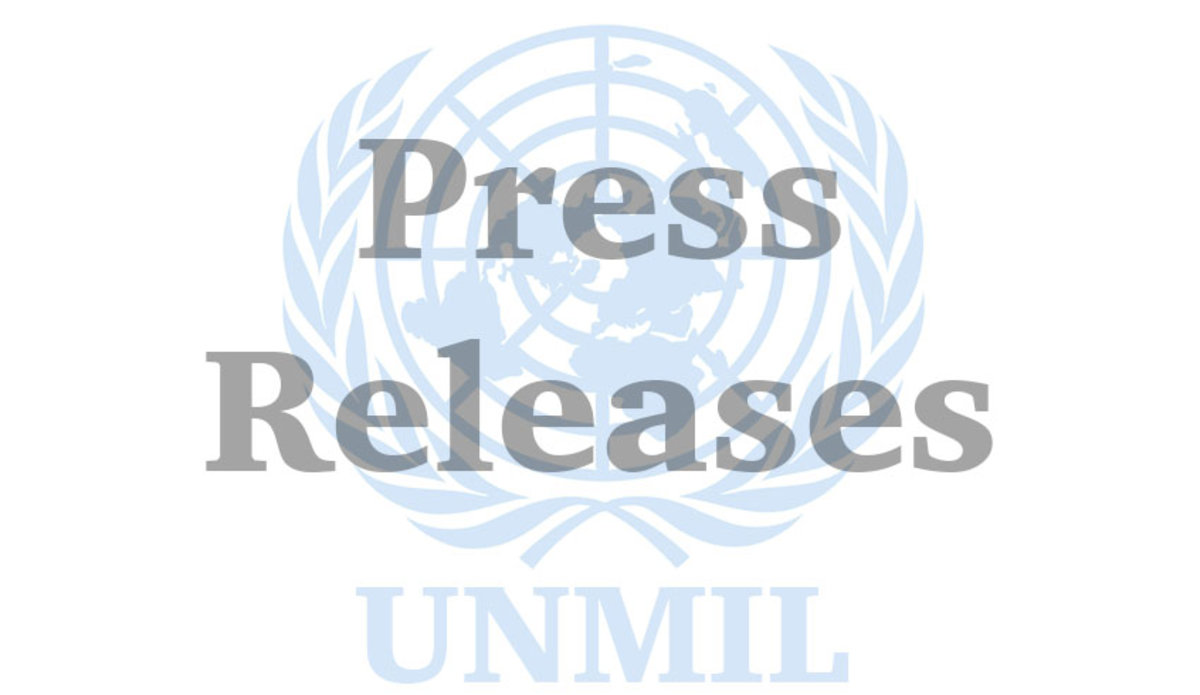Liberia eliminates maternal and neonatal tetanus
MONROVIA, Liberia, February 2012 – Liberia has been declared to have eliminated maternal and neonatal tetanus (MNT). The declaration was made recently by a validation team from the World Health Organization after a comprehensive review of immunization data and assessment of four counties (same level as districts in other countries in terms of population and life births) most at risk for MNT.
“This is a big achievement for us. The commitment and hard work of our vaccinators, health workers and community volunteers, and the valuable support from our development partners and donors is finally showing tangible results towards improving the health of our children and mothers,” said Dr. Bernice Dahn, Chief Medical Officer of the Ministry of Health and Social Welfare. “We will ensure that this hard work is maintained as the risk of MNT reappearing in Liberia is real without diligence.”
Despite the constraints and challenges associated with recovering from the 14 year civil war which ended in 2003, Liberia conducted three rounds of TT supplementary immunization activities (SIAs) from 2006 to 2008 as the whole country was considered high risk for MNT. The SIAs reported a countrywide coverage of above 80%. Between 2009 and 2011, the Ministry of Health and Social Welfare also started improving the coverage of routine immunization services; integrated neonatal tetanus to the enhanced EPI surveillance systems; increased accessibility to ANC services; promoting health facility delivery through special motorbike ambulances supplied by UNICEF and WHO; continued training of health workers, community volunteers and traditional birth attendants to ensuring clean delivery.
“I must commend the determination and diligence of the government and partners towards achieving this great milestone for the children and women in Liberia. Now we must work even harder in sustaining this MNT free status, and in eliminating other diseases that are killing children and women,” said UNICEF Resident Representative Ms. Isabel Crowley.
Maternal and neonatal tetanus (MNT) is a swift and painful killer disease that kills nearly 60,000 newborns every year and a significant number of women. Newborn babies can contract tetanus if the umbilical cord is cut with an unclean instrument or if a harmful substance is applied to the cord. The majority of mothers and newborns dying of tetanus live in Africa and Southern and East Asia, generally in areas where women are poor, with limited access to health care and information about safe delivery practices. Maternal and neonatal tetanus deaths can be prevented by immunizing mothers with the tetanus vaccine and emphasizing hygienic delivery and cord care practices.
In 1999, the World Health Assembly called for the elimination of neonatal and maternal tetanus. The goal of the initiative is to eliminate maternal and neonatal tetanus (MNT) through focus on the TT-SIAs. As of November 2011, there were still 38 high risk MNT countries including Liberia.
“We are extremely pleased to see Liberia eliminate maternal and neonatal tetanus,” said Dr. Nestor Ndayimirije, the WHO Representative in Liberia. “This achievement was made possible through the exemplary commitment of the Government and joint collaborative support of partners in ensuring that every woman of childbearing age is vaccinated against tetanus and clean delivery practices adopted throughout the country.”
MNT elimination in a country is defined as neonatal tetanus rate of less than one case of neonatal tetanus per 1000 live births in every district of the country. The WHO validation team in Liberia surveyed one thousand three hundred and sixty one (1,361) live births in the four most at risk counties. They also interviewed a sub-sample of 404 mothers of eligible live births regarding details of their last delivery, TT immunization status and cord care practices. Out of the sample of 1,361 eligible live births, there were 36 neonatal deaths, out of which only one death was attributed to neonatal tetanus. Neonatal tetanus was therefore declared to be eliminated in the four most at risk counties of River Gee, Grand Kru and Sinoe and, by extension, in Liberia as a whole.
With Liberia joining the list of countries that has eliminated maternal and neonatal tetanus, a total of 22 countries has reached the goal since 2000.
The MNT Elimination Initiative is an international private-public partnership that includes National Governments, UNICEF, WHO, UNFPA, GAVI, USAID/Immunization Basics, CDC, the Government of Japan, The Bill & Melinda Gates Foundation, Kiwanis International, Pampers – a division of Proctor & Gamble, and Becton and Dickinson.
 UN
UN United Nations Peacekeeping
United Nations Peacekeeping





